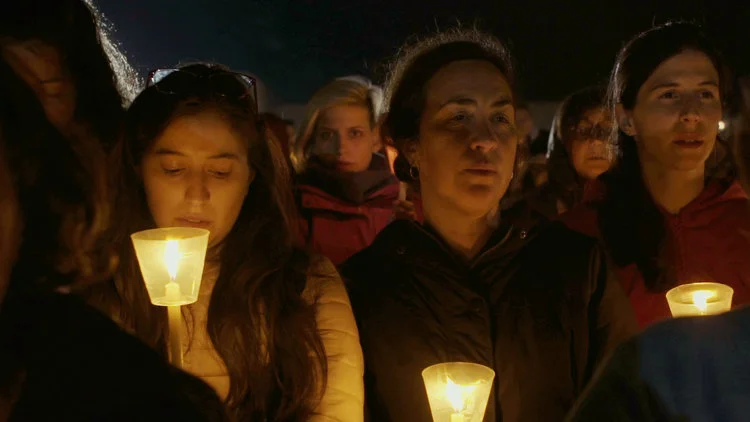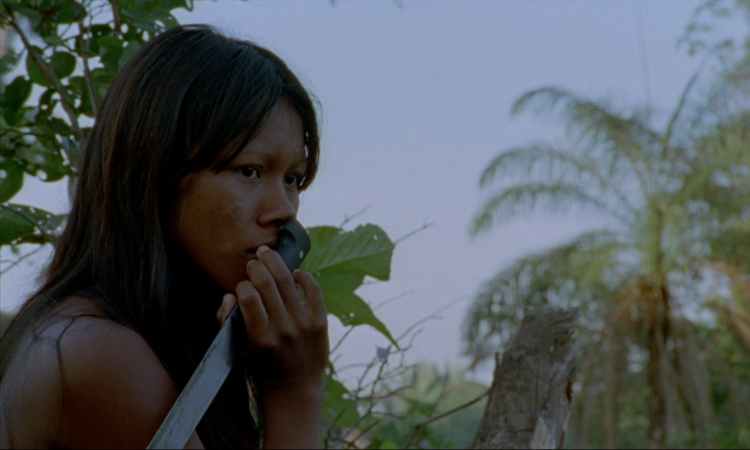Review by João Canijo
Every year during May all roads in Portugal lead to Fátima, a small town of religious importance situated in the middle of the country. It’s a common sight: thousands of people, wearing their high visibility vests, walking to that place of worship as a ritual of self-sacrifice, a penance to test their faith and repay whatever personal pledge they may have made during that year.
With this film, João Canijo follows a small group of women on their way to Fátima from their northern hometown, some doing it year after year, some for the first time.
Canijo focuses on their different personalities, how they try to deal with this challenge that is as much physical as it is psychological, negotiating with the harsh conditions, the weather and the winding down of their spirits. This journey is presented in a naturalistic, reality based style that Canijo has explored in his latest films.
For example, in Sangue do Meu Sangue (2011), the cast spent some time living in their characters’ conditions, taking their jobs, before filming, as a way to prepare. With his next film, É o Amor (2013) Canijo went even further in a collaboration with actress Anabela Moreira. The actress joined a group of women, non-professional actors playing themselves, who either worked on the fish docks or waited for their husbands, with Moreira taking on the role of someone equal to one these women, diluting herself in her part.
With Fátima he took an even further step toward the direction and depiction of realism. In an interview about the film Canijo stated that “it is not possible to represent a pilgrimage without doing it”.
So joined again by Anabela Moreira and some other actresses Canijo works with (such as Rita Blanco, Cleia Almeida and Teresa Madruga), he filmed the cast of eleven women as they went on a real pilgrimage for nine days and endured the same conditions as real pilgrims. This approach seems to bring the cast and their roles together, blurring the line between actor and character, while at the same time accentuating the differences among the group and among these women. The characters’ normal lives back home are thus temporarily suspended, but their problems are always on the brink of coming back to the surface as the group is constantly on the verge of disintegration, with each successive challenge disturbing their supposedly peaceful religious journey. The film then works in two ways: first, as a work about the dynamics of a group, the inter-relations that are formed, power shifts and signs of solidarity; at the same time, as a documentary on a group of actresses giving themselves into an extreme experience, not distant from their characters.
The director – who is himself a non-believer – doesn’t seem as interested in the religious considerations of this journey as much as he is in observing the cast, their creative inputs, and giving testimony of the strong nature of these women. It’s his (and the film’s) act of faith, following these women into redemption.



































